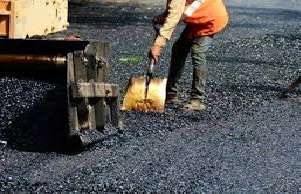Environmentalists warned that the that the KRDCL’s road widening projects will negative impact the forests and wildlife, incluiding elephant movement, and sought a realistic assessment of the damage.
The Karnataka Road Development Corporation Limited (KRDCL) has proposed road projects on Budigere Cross-Mylanahalli, Nelamangala-Madure, Madure-Devanahalli Road, Kanchugaranahalli-Jigani, Bannerghatta-Bestamaranahalli and Anekal-Hoskote sections.
Three environmentalists, Seema Mundoli, Ranjini Murali and Harini Nagendra, who released the report, “The environmental and ecological impacts of tree-felling and road widening of Bengaluru’s surrounding areas’, described the present estimate that 8,561 trees will be cleared for the projects as ‘conservative’.
They said that a rapid environmental assessment, has susggested that many more trees would go. “The outer road project will result in numerous heritage trees being cut—in a 15 km stretch we counted 206 banyan trees many of which were old and large,” they stated in the report.
The report added that as many as 14 lakes situated along the stretches of the roads and few of the widening projects take place would be carried out within 30 metre boundary of the lakes. “These lakes support a host of biodiversity from water birds, to amphibians, to reptiles, to fish and invertebrates..Nearly 144 bird species have been recorded in e-Bird lists from lakes in Bengaluru (Annexure 5). Disturbing these lakes for road widening will disturb these crucial habitats of birds,” it said.
The report noted that proposed stretches pass through crucial biodiversity habitats that including the Junnasundra Mini Forest, and the Anekal Reserve Forest contiguous with the Bannerghatta National Park, as well as scrubland, and agricultural fields. Disturbance of these stretches can negatively impact fauna including the endangered slender loris, it warned.
On June 15, DH had reported that Forest Department has already permitted KRDCL to cut 2838 trees and translocate 244 trees by issuing orders in March and May, when the state was under strict lockdown.
The report said translocation would not compensate for the loss caused by the cutting of trees. “We would like to strongly emphasise that no kind of planting or transplanting can replace the loss of these huge trees that provide an invaluable ecological service. Young saplings will take decades to grow, and also take a lot of time before they can provide the benefits that full-grown,” it said.



